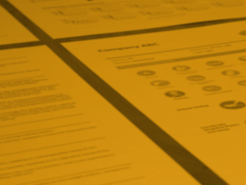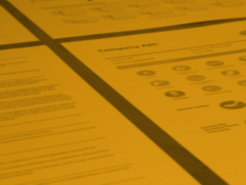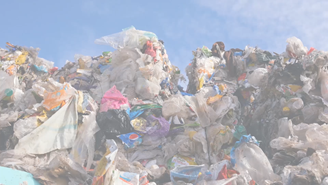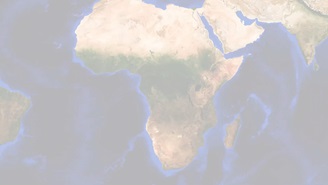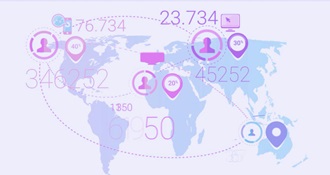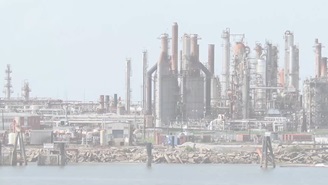Product Involvement
Sustainalytics' Product Involvement research helps identify companies involved in a range of products, services and business activities for screening purposes. Each activity is accompanied with a concise summary of the way the company is involved in the relevant product or activity.
Feeding the Future
Agriculture is estimated to account for one-quarter of the world’s greenhouse gas (GHG) emissions, 80 percent of deforestation, 70 percent of water use and 78 percent of ocean and freshwater pollution. This engagement theme aims to contribute to a more sustainable trajectory for the future of food.
Global Standards Screening
Sustainalytics’ Global Standards Screening product provides an assessment of a company’s impact on stakeholders and the extent to which a company causes, contributes or is linked to violations of international norms and standards. Download the brochure to learn more about how Sustainalytics identify the Global Sustainability Signatories.
Thematic Engagement Bundle
Our Comprehensive Thematic Engagement program combines a set of four thematic engagements in a single package: Climate Transition, Human Capital and the Future of Work, Plastics and the Circular Economy and Tomorrow’s Board. The themes have been selected to give investors the broadest possible coverage of E, S and G topics with exposure to diverse industries and companies.
Plastics - A Material Issue for Investors
The plastic waste issue is currently one of the fastest growing environmental topics on the political and business agenda. Plastic is a vital product to the global economy; however, the way it is being produced and managed is unsustainable, especially at the use and after‐use phases. The carbon footprint and emissions associated with plastic production along with the issue of the environmental and potential health impacts of plastic waste are a matter of growing concern for investors. In light of the environmental, social and financial challenges, the linear “take, make and dispose” approach cannot continue. The alternative is a circular economy approach, which focuses on maximizing resource value, making resource use more efficient and extending product value during use.
South Africa and ESG Risk
A Case Study On November 1, 2019 Moody’s cut its rating outlook for South Africa from “Baa3 stable” to “Baa3 negative,” putting the country’s bonds on the cusp of junk status after several harbingers of a potential downgrade.[i] Earlier this year, the World Bank and the International Monetary Fund cut their 2019 growth forecasts for South Africa to around 0.8%, while the Institute of International Finance warned that the country’s public debt could grow to 95% of Gross Domestic Product (GDP) by 2024.[ii] The other two big credit rating agencies (CRAs) – Fitch and S&P – downgraded South Africa’s credit rating to sub-investment grade back in 2017, citing a deterioration in the country’s public finances.[iii]
A Case for Impact Investing in Public Equities
As awareness around environmental and social issues has grown, so has the number of investors who deliberately seek to allocate capital to create positive social and environmental impact. Impact investing is as old as the sustainable investment industry, with the bulk of strategies to date having been executed through private equity and debt vehicles. However, as a more diversified pool of investors look to adopt impact investing strategies, fueled by the United Nations’ Sustainable Development Goals (SDGs) and the Paris Climate Agreement, a broader set of asset classes are being considered – here enters public equities.
Sustainable Finance and the EU Taxonomy: Developments from the Trilateral Negotiations
As global leaders meet in Madrid for the COP25 amid mounting concern over the international response to climate change, the EU Taxonomy experienced a setback with the UK and France blocking the plans. The new framework, intended to drive financial flows that will accelerate the shift to a low carbon future, will likely become a global standard affecting investors around the world. If enacted, it could cement the EU’s position as the world’s pace setter on climate legislation.
Death and Taxes are the Only Constants - But Not for Everyone
Major global companies such Google, Amazon, Facebook and Apple (known as “GAFA”) have come to dominate not just the tech industry but increasingly global commerce as well. The OECD estimates that companies like these avoid USD 100-240 billion in taxes annually, representing roughly 4-10% of global corporate income tax revenues. Attention paid to corporate taxation has also risen sharply in recent years, with increasingly heated debates on what constitutes “companies paying their fair share.”
PFAS Sparks a Wave of Litigation in the U.S. Chemical Industry
In 2019, a wave of litigation related to per- and polyfluoroalkyl substances (PFAS) emerged in the United States, as several states filed lawsuits against PFAS manufacturers, including DuPont, Chemours and 3M. This legal action accompanies increased regulatory scrutiny of this potentially risky class of chemicals. In this article, we will focus on the risks chemical companies face related to PFAS contamination of drinking water in the United States and the ESG risks posed to chemical companies and their investors.
Aligning Finance and Sustainability: The Role of the Principles for Responsible Banking
The Principles for Responsible Banking requires banks to take a hard look at their business strategies and their impacts on the environment and society. For this reason, Sustainalytics has endorsed the Principles for Responsible Banking and has committed to working closely with banks as they seek to further incorporate sustainability considerations throughout their operations.
Revising Mining Codes: Equality for Nations or Nationalization?
In recent years, an increasing number of nations, particularly in Africa, have been amending their mining codes. Governments likely view these amendments as a way of getting more for their people from their natural resources. But are these amendments slowly leading to the nationalization of the sector in some of these countries and how are the companies reacting?
Cybersecurity: A Pervasive Risk
In 2017, in the wake of the WannaCry ransomware attack, we argued that the event should be seen as a cybersecurity wake up call. Since then, cybersecurity risks have remained a source of uncertainty for most companies, driven by the increasing intensity, both in volume and impact, of cyberattacks. These risks are compounded by the continuous expansion of critical infrastructure (energy grids, utilities, hospitals) to digital platforms and the breadth of sensitive information that is housed in online servers. As a result, the pool of lucrative targets for malicious actors continues to grow. This is reflected in the notable rise in the number cyber insurance claims. According to a study by AIG, 2018 had the same number of cyber insurance claims as the preceding two years combined.[i]
Business Ethics and Economic Downturn - A Closer Look at China
In October 2019, China posted its lowest quarterly GDP growth rate (6.0%) in 30 years. While the country’s trade war with the US might have added to the economic headwind, the economic results are in line with a decade of cooling down following years of double-digital growth.

.tmb-thumbnl_rc.png?Culture=en&sfvrsn=ce56d6ce_2)


ee43428f-bcdf-4965-bdf5-d425e447dd71.tmb-small.jpg?Culture=en&sfvrsn=f87532da_2)
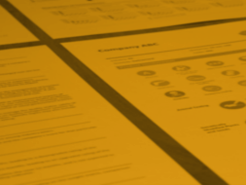

.tmb-small.jpg?Culture=en&sfvrsn=655ef212_2)
